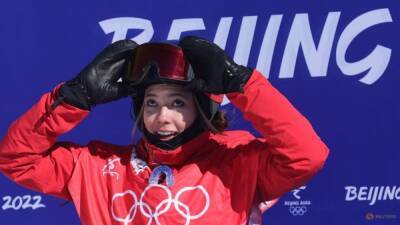China has strict rules for dual citizenship, but apparently not when it comes to elite athletes
A spectacular finish for American-born Eileen Gu, a freestyle skier, secured the 18-year-old her first gold medal for China this week at the Beijing Winter Olympics.
After her victory, China's General Administration of Sport sent her a congratulatory letter encouraging her to «strive for greater glory for the Party and the people» and continue to help realise «the dream of a powerful sports nation».
But Gu's victory cast the spotlight on a more uncomfortable topic related to her participation for China: her citizenship status.
Like many of the athletes representing Team China, Gu was born and trained in a foreign country but competes for China.
However, it's unclear whether she or any of the others have given up their foreign passports to comply with China's rules banning dual citizenship.
Or whether China has bent the rules to get more elite athletes on board.
Jeanne Huang, an international law expert at the University of Sydney, said it was «impossible» for the International Olympic Committee (IOC) and China to provide exemptions to the citizenship requirement.
«The Olympic Charter Rule 41 is very clear, which requires the athletes to have the citizenship for representing a country,» Dr Huang said.
«China's law on citizenship, it's very strict. It clearly says it does not recognise dual citizenship.
»Only those who made great contributions to China and have strong connections with the country can be granted with the citizenship."
Gu herself has remained ambiguous on the topic.
«I'm American when I'm in the US, and I'm Chinese when I'm in China,» she told media in Beijing last week.
The lack of clarity on her citizenship comes at a tense time in geopolitical relations, and when Beijing is trying to demonstrate dominance on the







